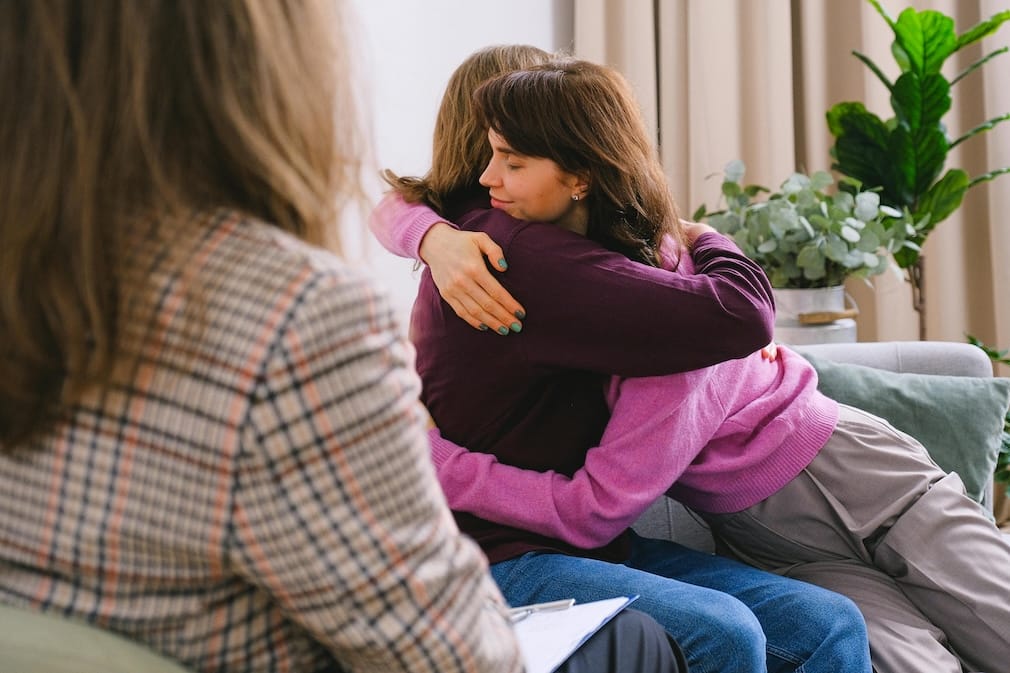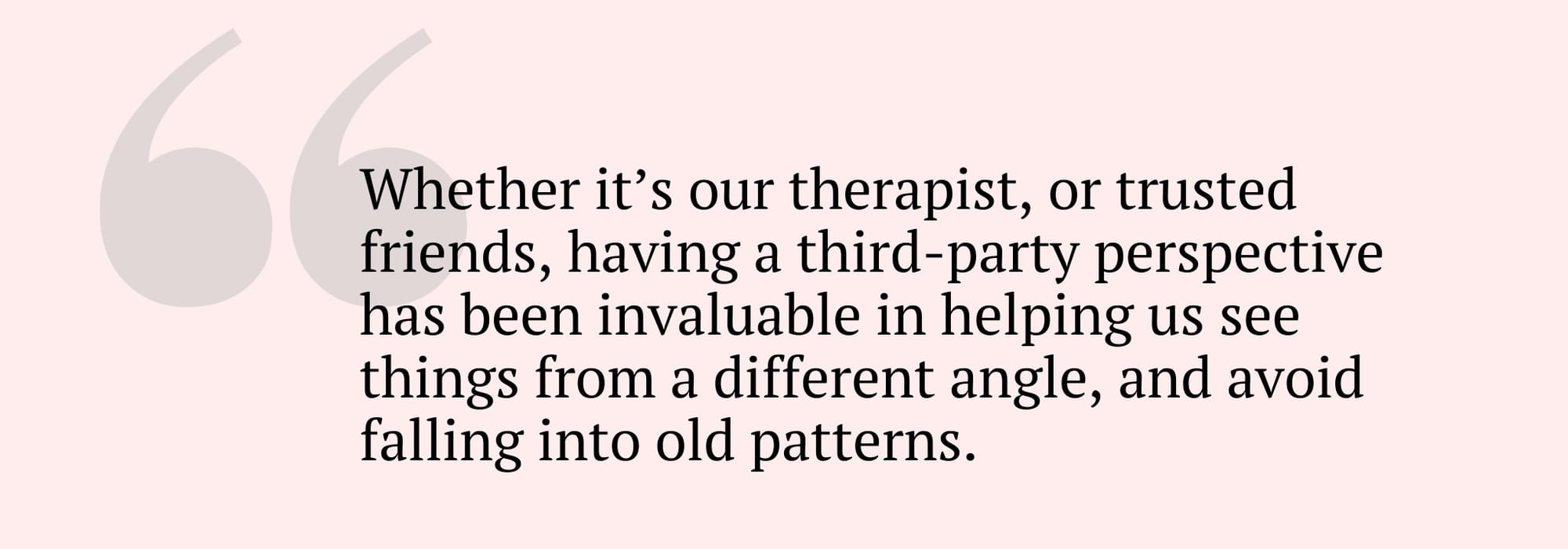Thinking of getting hitched again? Discover the vital lessons couples can learn from their previous relationships to help them build better, stronger partnerships next time around
After my first marriage crumbled in 2017, I swore I would never walk down the aisle again. Freshly heartbroken, I decided I would date casually, and leave it at that. So, marriage was the last thing on my mind when I met my current partner in 2023. What started as a laid-back coffee date in a nearby cafe transitioned into a serious connection, with my partner proposing to me only three months later.
But things were far from simple. Both of us had been married previously, and these prior relationships had not ended amicably. In fact, this prompted two of the many things we had in common: we carried the scars of previous marriages, and had sworn off commitment altogether – until our paths crossed.
Now that we are getting hitched for the second time, we are determined to build a stronger, healthier relationship by learning from our mistakes. After all, the odds are against us; according to an article by Forbes (which combined the latest data from the US Census, the CDC and Pew Research), 60% of second marriages end in divorce as opposed to only 43% of first marriages. Without further ado, here are my top five lessons, based on what my fiancé and I are doing differently this time.
Have realistic expectations of the relationship (and each other).
First off, in our previous marriages, we had unrealistic expectations. We believed that no matter what, love would be enough to keep everything afloat. Spoiler alert: it wasn’t – no matter how much Hollywood and Bollywood push that narrative.
We learned the hard way that a successful relationship is built on more than grand romantic gestures. It requires daily effort, and a deep commitment to understanding each other. Love isn’t a fairy tale, but a conscious choice made every day. Research supports this; a study published in the Journal of Personality and Social Psychology revealed that couples with realistic expectations experience greater relationship satisfaction overall.
Despite being an idealist, I have accepted that it is only human to be imperfect, and we will mess up sometimes. That’s OK, as long as we commit to growing and learning from those mistakes together. We are now approaching our upcoming nuptials as two individuals who see each other’s strengths and weaknesses, and support each other’s personal growth.
What’s more, we have had conversations about what marriage means to us, and what we expect regarding crucial matters like finances, family, and faith. Laying everything on the line has made us feel more secure about entering this commitment.
Work through past trauma, or things we’re holding on to.
I didn’t want any past baggage to seep into our relationship, so we decided to see a couples therapist. Couples therapy has been shown to help with common issues like problem-solving, forgiveness, communication, and the resolution of needs and feelings, as noted in a review of clinical evidence and guidelines published in the Canadian Agency for Drugs and Technologies in Health.
Indeed, according to a 2023 survey by Verywell Mind, couples in therapy rightfully believe that it will improve the quality of their relationship. While therapy has been challenging, it has brought us closer, and given us a safe space to explore past fears, insecurities, and concerns before they become present-day issues.

Now it may sound like we are fixating on the past, but we aren’t dissecting our exes’ flaws and shortcomings. As our therapist, Ketaki Natekar, a senior psychologist at MindPeers, says: “The most important thing is to focus on lessons you learned in previous relationships. Often, past relationships have been so painful that we want to avoid thinking about them. However, focusing on the patterns and wounds of previous relationships not only helps in healing, but also helps identify triggers, and to work around them in the present relationship. Of course, this is helpful only when done in a calm headspace, and not in the middle of a fight.”
Our therapist also helped us recognise the importance of boundaries and personal space – something neither of us did well previously. We have learned to respect each other’s need for alone time and self-care, knowing that a healthier, happier individual leads to a stronger partnership. Research, reported by authors Nate and Kaley Klemp in their book The 80/80 Marriage, shows that couples who maintain physical and mental space experience a heightened sense of love, connection, and intimacy.
Create a safe space to be honest with each other.
To build trust and safety, we decided to be honest with each other. Safety was severely lacking in my first marriage, so this has been far from easy. While I have struggled with opening up, I have come to realise that it is imperative, as trust and safety cannot be built in any relationship unless two people really talk to each other.
However, opening up about trauma isn’t just about sharing a story; it’s about reliving the pain, and trusting that someone will hold it with care. Therefore, our therapist recommended I do it at my own pace. She says: “Trauma is tricky, vulnerability is difficult. We can’t expect anybody to share all their pain and trauma in one go. Vulnerability requires the promise of safety. Safety is built with time and understanding.
“Spend the first few months cultivating an environment of safety and security within your relationship. Build vulnerability in small steps. Begin with the least costly thing you can discuss, and gauge the reaction. Allow your partner to process bits of information gradually.”
Communicate instead of avoiding confrontation.
With my ex, conflicts would often spiral into full-blown fights. As for my current partner, he would fall silent as he would not know how to respond to his ex-wife in the heat of the moment. Neither of us was equipped with the tools to de-escalate or resolve issues.
Today, we are far more intentional about how we handle disagreements. Instead of letting small issues snowball, we address them before they become overwhelming. We have also learned that not every disagreement needs to be resolved immediately; sometimes, it’s better to take a break, reflect, and then return to a conversation. It is OK to go to bed angry sometimes.

Accept outside support.
Lastly, we don’t shy away from outside help. Whether it’s our therapist, or trusted friends, having a third-party perspective has been invaluable in helping us see things from a different angle, and avoid falling into old patterns.
Second marriages statistically have a higher rate of divorce, and we both carry the emotional scars of our past. The odds are not in our favour, but we are not letting this get to us. Instead, we are using everything we’ve learned from our first marriages – the mistakes and the lessons – to build something stronger. We are committed to doing the work, staying honest with each other, and keeping the lines of communication open.
This unexpected second chance at love is one we are not taking for granted, and we are determined to make it last. As we enter a new chapter of our lives, we are hopeful that our marriage will not only survive, but thrive.


Comments